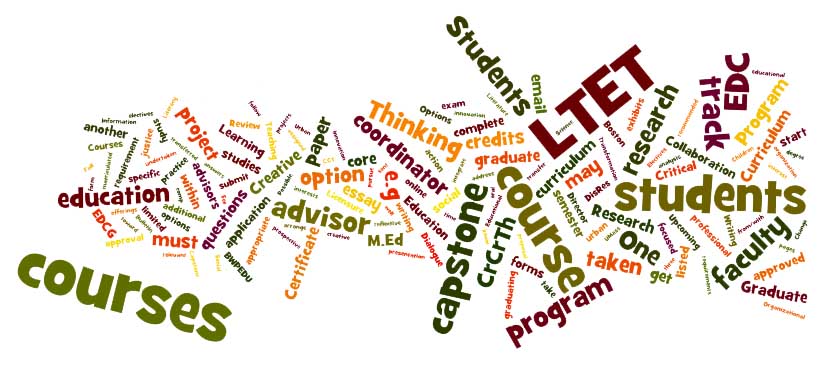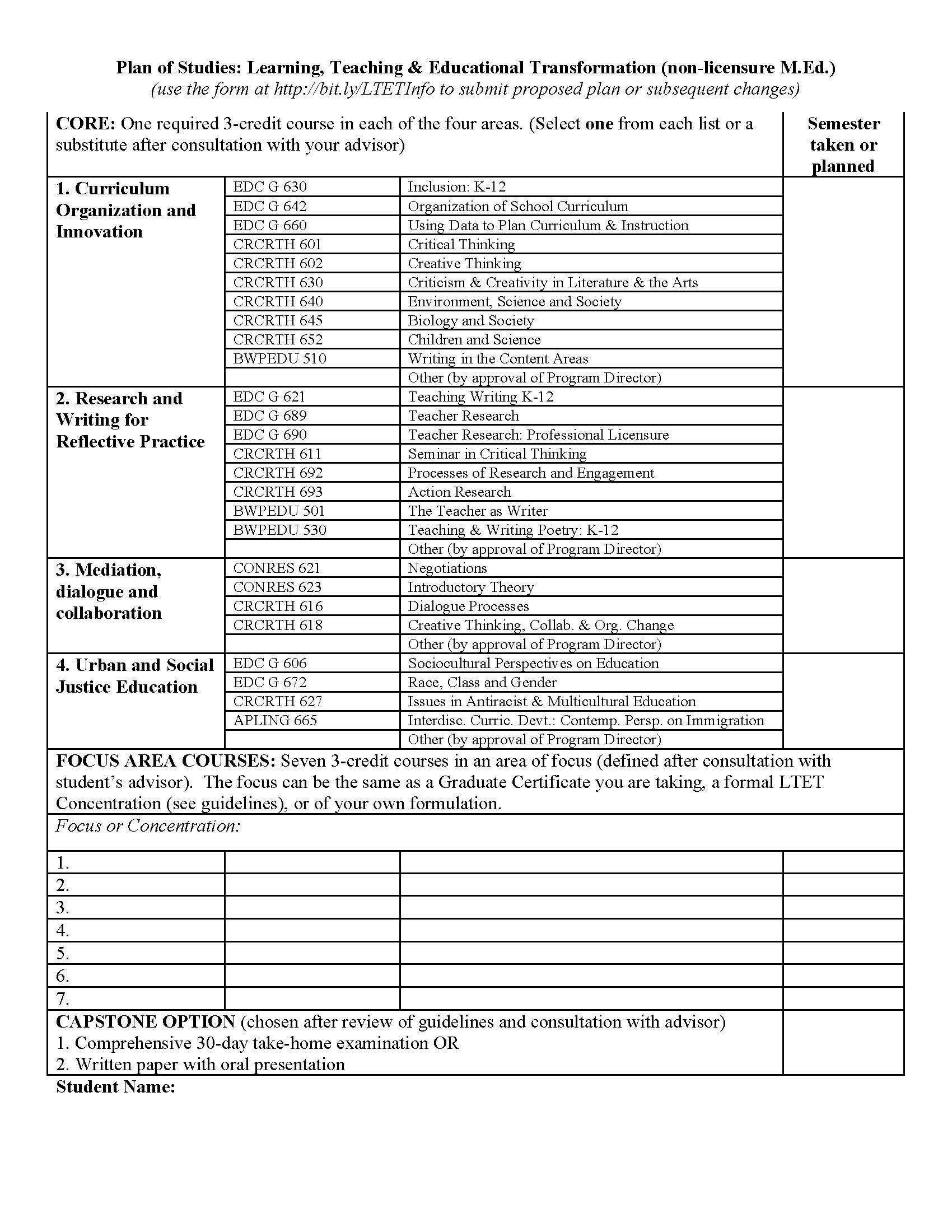LTETRequirements

Learning, Teaching & Educational Transformation
(non-licensure M.Ed. track)
"providing students with knowledge, tools, experience, and support so they can become constructive, reflective agents of change in education within traditional and non-traditional roles and settings, from a social justice perspective and by embedding reflection within their practice"
Graduation
Students graduating in May/June or August should complete their
capstone requirement in the spring and submit their
application to graduate to the Registrar when notified early in the spring and fall semesters (make sure that WISER has your current address and you check your umb.edu email).
- The LTET coordinator will be given a chance to check the information and will contact you if there are any issues.
- If you add/drop courses after you submit the application, send an email to the LTET coordinator, who will forward it to the Graduate Registrar, who will attach it to your application.
Course Requirements
Four core area courses (12 credits), seven electives (21 credits) in an area of focus, and a
capstone (two options). Core courses are drawn from four areas–Curriculum Organization and Innovation; Research and Writing for Reflective Practice; Mediation, Dialogue, and Collaboration; Urban and Social Justice Education. The choice of core courses must be recommended by the student's advisor and approved by the Program Director. The area of focus for the electives can be the same as a Graduate Certificate the student is taking, as a formal LTET Concentration, or of a student's own formulation.
- Two upper-level (300- or 400-level) undergraduate courses from UMass Boston may be approved by the Program Director to be counted toward electives.
- Students may transfer credits from a UMass Boston Certificate program into the non-licensure M.Ed. track (subject to the usual condition for transfer credits that the grade must be B or higher). This option is especially relevant for students from the following Certificate programs:
- Formal LTET concentrations for students who include in their 11 LTET courses 7 that are required for the corresponding licensure or CAGS tracks:
- Elementary Education, Middle School Education, Secondary Education, Teacher Leadership
- The concentrations in Elem, Middle, or Secondary Education ensure that students address the educational issues deemed important by the licensure programs. The concentration in Teacher Leadership ensures that, in addition to the four core areas of LTET, students address some or all of the following: Organizational Change; SPED/ELL expertise; Content Knowledge (depending on student's content specialty); and Technologically-mediated learning design (which emphasizes learning theory).
- These four concentrations are not the only foci for LTET students. Under a regular Learning, Teaching & Educational Transformation concentration, students can choose the area of focus for their electives to be the same as a Graduate Certificate they are taking or, as has been the case since the track began in the 1990s, students can formulate a focus that prepares them for work in a broad range of education-related professions, such as adult- and community-based education, educational research, policy analysis, philanthropy, and advocacy.
Use downloadable form
LTETTrackflowsheet15May13.doc for planning then submit the form at
http://bit.ly/LTETInfo with your proposed course plan or any subsequent changes.


